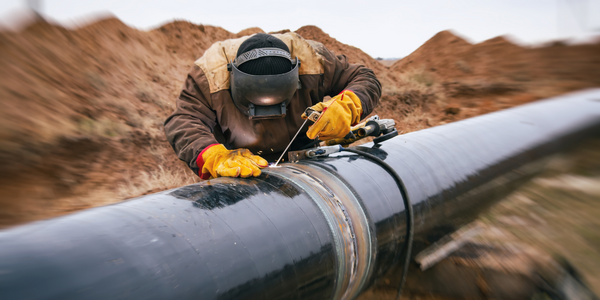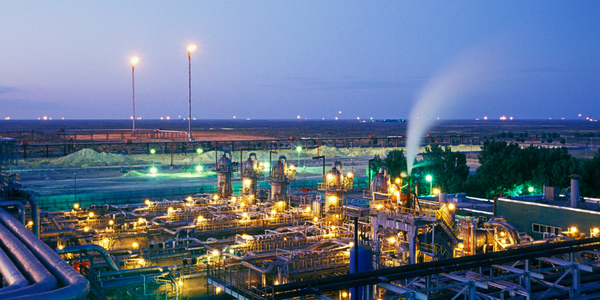Customer Company Size
Large Corporate
Region
- Asia
Country
- Qatar
Product
- GE’s Asset Performance Management (APM) solution
- Predix cloud platform
Tech Stack
- Machine data sensors
- Predictive analytics
- Process optimization
Implementation Scale
- Enterprise-wide Deployment
Impact Metrics
- Cost Savings
- Productivity Improvements
- Waste Reduction
Technology Category
- Analytics & Modeling - Predictive Analytics
- Platform as a Service (PaaS) - Data Management Platforms
Applicable Industries
- Oil & Gas
Applicable Functions
- Maintenance
- Discrete Manufacturing
Use Cases
- Predictive Maintenance
- Process Control & Optimization
Services
- Cloud Planning, Design & Implementation Services
About The Customer
RasGas is a Qatari joint stock company that is one of the world's premier integrated liquefied natural gas (LNG) enterprises. The company is owned by Qatar Petroleum (70%) and ExxonMobil (30%), and it employs more than 3,000 people. RasGas is responsible for transforming a regional resource into a key component of the global energy mix. The company's LNG production in Ras Laffan, Qatar, consists of seven LNG production trains with an approximate capacity of 37MM Tons a year. Qatar remains the largest LNG exporter, providing 77 MTA to the market, which is roughly one-third of the global supply.
The Challenge
RasGas, a Qatari joint stock company owned by Qatar Petroleum and ExxonMobil, is one of the world's premier integrated liquefied natural gas (LNG) enterprises. The company is focused on cost and value optimization to reduce overall expenditures and enhance efficiency by improving plant reliability and availability without compromising safety, health, and the environment. The LNG production at RasGas in Ras Laffan, Qatar, consists of seven LNG production trains with an approximate capacity of 37MM Tons a year. The company began an initiative in late 2014 with a pilot for early detection of equipment or system failures and production optimization for selected units of three LNG trains.
The Solution
The initiative at RasGas began in late 2014 with a pilot for early detection of equipment or system failures and production optimization for selected units of three LNG trains. This covered both GE and non-GE equipment with GE’s Asset Performance Management (APM) solution, built on the Predix cloud platform, using machine data sensors, predictive analytics, and process optimization. GE’s APM solution empowers RasGas with asset anomaly detection through a unified user experience, providing alerts, alarms, historical analysis with visibility into asset performance and health. The intention of RasGas’s APM analytic solution was to reduce unplanned downtime, improve productivity and reliability, and to move from reactive to predictive maintenance for rapid recovery.
Operational Impact
Quantitative Benefit

Case Study missing?
Start adding your own!
Register with your work email and create a new case study profile for your business.
Related Case Studies.

Case Study
Taking Oil and Gas Exploration to the Next Level
DownUnder GeoSolutions (DUG) wanted to increase computing performance by 5 to 10 times to improve seismic processing. The solution must build on current architecture software investments without sacrificing existing software and scale computing without scaling IT infrastructure costs.

Case Study
Remote Wellhead Monitoring
Each wellhead was equipped with various sensors and meters that needed to be monitored and controlled from a central HMI, often miles away from the assets in the field. Redundant solar and wind generators were installed at each wellhead to support the electrical needs of the pumpstations, temperature meters, cameras, and cellular modules. In addition to asset management and remote control capabilities, data logging for remote surveillance and alarm notifications was a key demand from the customer. Terra Ferma’s solution needed to be power efficient, reliable, and capable of supporting high-bandwidth data-feeds. They needed a multi-link cellular connection to a central server that sustained reliable and redundant monitoring and control of flow meters, temperature sensors, power supply, and event-logging; including video and image files. This open-standard network needed to interface with the existing SCADA and proprietary network management software.

Case Study
Refinery Saves Over $700,000 with Smart Wireless
One of the largest petroleum refineries in the world is equipped to refine various types of crude oil and manufacture various grades of fuel from motor gasoline to Aviation Turbine Fuel. Due to wear and tear, eight hydrogen valves in each refinery were leaking, and each cost $1800 per ton of hydrogen vented. The plant also had leakage on nearly 30 flare control hydrocarbon valves. The refinery wanted a continuous, online monitoring system that could catch leaks early, minimize hydrogen and hydrocarbon production losses, and improve safety for maintenance.




_30.jpg)





